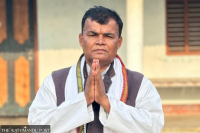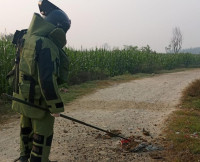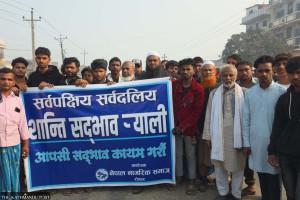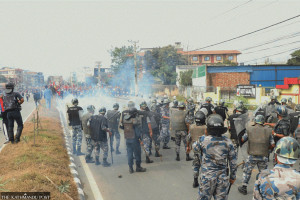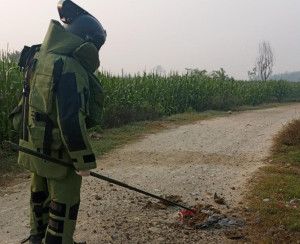Madhesh Province
Musahar children can’t enrol in schools for lack of birth certificates
Child marriage, which is illegal in Nepal, is still common in the community leading to unregistered births of children from underage marriages.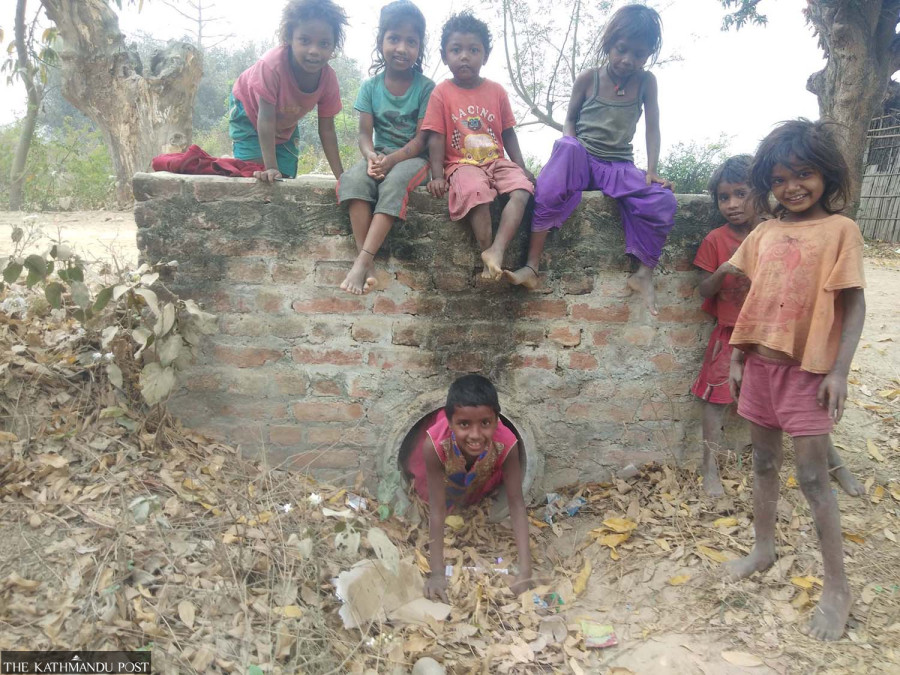
Bharat Jargha Magar
Silto Devi Sadaya Musahar, 19, of Jhutaki in Lahan Municipality-24 has three children—two daughters and a son.
Her daughters—five-year-old Aakriti and four-year-old Anu—are of school-going age but they have been unable to get admitted at the local community school since their births were not registered.
“I married at 13. Since I am underage, my marriage has also not been registered. With no legal documentation, I haven’t been able to register the births of my children,” she said.
This is not an anomaly. Several school-going children from the Musahar community, where child marriage is still in practice, have been left out of the education system for a lack of legal documents such as birth certificates.
“Women in our community do not have much of a choice. We get married early to ease our parents’ burden and the cycle continues with our children,” said Silto Devi. “But I don’t want that kind of future for my children. I want them to get an education and live a different life. I am living out my days as a daily wage earner with nothing to my name but I don’t want my children to live like this.”
Five-year-old Jyoti Sadaya and her four-year-old sister Manisha from the Musahar settlement in Kataha of Lahan-19 are also out of school since they were denied admission for a lack of birth registration certificates. Their father Salin Sadaya, 21, does not have a citizenship certificate nor is his marriage to his teenage wife registered at the ward office.
According to the existing legal provisions, the guardians have to furnish their children’s birth certificates while seeking admission at any school.
“Despite legal provisions, child marriage is still rampant in the Musahar community. Illiteracy and a lack of awareness on child marriage are some factors that have given continuity to this malpractice,” said Chandeshwar Sada, the chairman of Nepal National Musahar Association.
According to him, the association is carrying out a survey to determine the exact number of children from impoverished communities that are out of the school system.
“The government authorities and other stakeholders must consider a way for Musahar children to be included in the school system,” said Sada. “Child marriage is a larger problem that needs to be tackled with efforts towards poverty eradication since poverty is one of the leading causes of child marriage in impoverished communities.”
According to the recently amended civil code, the minimum age for marriage in Nepal for both women and men is 20. Although the country abolished child marriage in 1963, the practice is still rampant, especially in the rural areas, even as human rights groups regularly blame the government for failing to take sufficient steps to end the practice.
According to Sada, even among the Dalit communities, Musahar and Dom are the most marginalised.
“Because most marriages and births in these communities are unregistered, a large number of people are deprived of education, child nutrition allowance, Dalit scholarship, citizenship and social security allowances,” he said.
Jibachha Yadav, a teacher at Siraha-based Sagarmatha Secondary School, says a large number of children from the Musahar and Dom communities in the area have not been able to attend school for a lack of birth certificates.
“The first step towards eradicating malpractices such as child marriage in impoverished communities is to give them a chance at education. That said, we have had to deny enrollment to many children, mainly from the Musahar community, since they don’t have birth certificates issued by the ward office,” Yadav said.
Lahan Municipality said efforts are underway to include those children who are deprived of education for a lack of birth registration certificates to the school system.
“We have started collecting data on such children. An alternative will be sought so that all children can have access to education,” said Raj Kumar Sah, the education unit chief of the local unit.
According to the National Census 2011, the total population of Musahar people across the nation is 234,490.




 27.41°C Kathmandu
27.41°C Kathmandu
